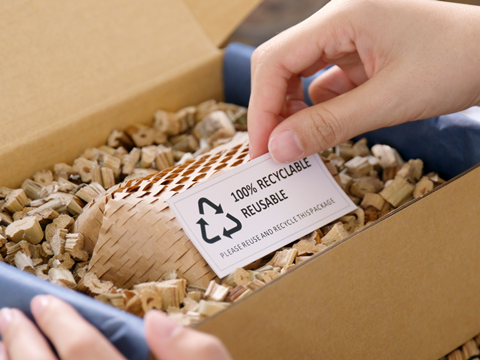
VTT Technical Research Centre of Finland has announced an initiative to pioneer low-carbon, water-efficient technology which apparently has the potential to reduce water consumption by up to 90% and overall energy consumption by more than half.
The initiative aims to address the challenges of energy and resource consumption in the forestry and textile industry. The company states the goal of the collaborative Energy First initiative is to act as a starting point for a new technology which creates the conditions for the manufacture of low-carbon, energy-efficient, and recyclable fibre-based products.
Citing data from Statista Market Insights and eMarketer, VTT states that with the continued growth of global e-commerce, the demand for various fibre-based packaging solutions is projected to grow 5–10% annually. It adds that due to this, there is a need to develop scalable, high-quality packaging that is easy to recycle while simultaneously significantly reducing carbon footprint. Within non-wovens, used in napkins and wipes for example, VTT expects a strong shift from traditional products that contain plastic to cellulose-based products.
With a budget of around 20 million euros over the next four years, the initiative consists of several projects and is expected to establish a new open-access pilot line in Jyväskylä, Finland. The research from the initiative is aimed towards developing and testing commercially viable, sustainable alternatives for cardboard packaging, hygiene products, and non-woven fabrics.
The Energy First project seeks to overcome challenges in the forest industry such as rising energy costs and fibrewood scarcity by developing a manufacturing process with minimal water and energy usage. Preliminary estimates by VTT’s scientists suggest that the new manufacturing process will provide a potential reduction of up to 90% in water consumption and a significant decrease in carbon emissions. The overall goal is to reduce energy consumption by up to 50%.
VTT says products manufactured with the new process are designed to be compatible with existing recycling methods, as the planned EU Packaging and Packaging Waste Directive requires that both the raw material and the manufacturing process are sustainable, and recyclable bio-based packaging solutions will have to undergo a sustainability assessment.
The project also seeks to redefine the forest industry’s environmental impact and enhance the competitiveness of fibre-based products by making the products lighter, hoping to improve resource efficiency.
The initiative is funded by the EU, the European Regional Development Fund (ERDF), VTT and the collaborating companies. The consortium is also actively engaging in EU projects such as EU SteamDry, with a total budget of 9.84 million euros over 3.5 years.
In similar news, Siegwerk, Greiner Packaging, and Krones teamed up in February for an initiative set on deinking and recycling polypropylene and polystyrene cups via hot caustic washing. The process can remove labels and cleaning plastic flakes to remove odour, and the companies believe that the process could also be beneficial for ink removal.
A few months later, Polytag named M&S as a founding member of its Polytag Ecotrace Programme, which seeks to trace and recycle single-use plastic packaging using Invisible UV Tag detection. The process is expected to unlock accurate sorting and cleaner feedstock for recycled PET packaging materials, improve recycling rates, and give companies clearer insights into recycling rates for their plastic packaging.
If you liked this story, you might also enjoy:
How are the top brands progressing on packaging sustainability?
Sustainable Innovation Report 2024: Current trends and future priorities
Reuse vs. single use – which is better for the environment?
The ultimate guide to global plastic sustainability regulation














No comments yet